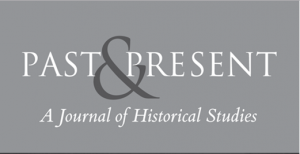by the Past & Present editorial team
Past & Present was pleased to learn that Dr. Jessica O’Leary (Australian Catholic University) has recently been awarded two prizes for her Open Access article “The Uprooting of Indigenous Women’s Horticultural Practices in Brazil, 1500–1650” which was published in Past & Present No. 262 (February 2024).
Dr. O’Leary was awarded the biennial Philippa Maddern ECR Publication Prize by the Australian and New Zealand Association for Medieval and Early Modern Studies (ANZAMEMS).
As ANZAMEMS explain:
“The Philippa Maddern ECR Publication Prize is awarded to an Early Career Researcher (ECR) for the best article-length scholarly work in any discipline/topic falling within the scope of medieval and early modern studies, published within the below date range.”
More recently Dr. O’Leary was awarded the Australian Women’s History Network’s Mary Bennett Prize.
This prize is awarded “to the best article or chapter bearing the hallmarks of advanced historical scholarship and contribution to the academic field of women’s history”. The award is only made in years when a piece of scholarship is deemed to have reached the levels of quality and significance required to obtain it. When awarded the prize consists of an award of two hundred Australian Dollars and a citation.
Dr. O’Leary’s citation reads:
“In this impressive ethnohistorical account of Indigenous women’s practices in 16th century Brazil, O’Leary shows how, following the arrival of Jesuit missionaries, women’s central role in Indigenous agricultural practices were expunged from public memory and the historical record. Based largely on Spanish-language sources, this beautifully written and innovative article sets out to reinstate their story, in the process expanding our thinking about Indigenous women as resource holders and knowledge holders, and our understanding of Indigenous women as agents as well as the objects of colonisation.”
Our congratulations to Dr. O’Leary on their scholarship in “The Uprooting of Indigenous Women’s Horticultural Practices in Brazil, 1500–1650” being recognised in this way.

